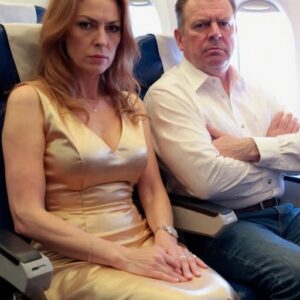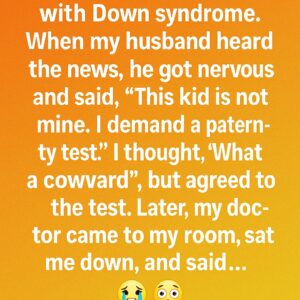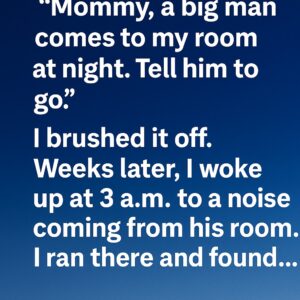
I came up with a novel way to teach my husband the significance of community resources after realizing he frequented food banks despite our high income. Would this eye-opening method improve our understanding or strain our relationship?
Hello, everyone! Celine here to complain about something bothering me.
For 17 years, Kris and I have had a good marriage and financial security. We’re not poor with a combined income over $200,000.
Kris is compulsively thrifty, sometimes to an extreme.
Kris visits local food banks despite our well-stocked fridge and resources to buy what we need. Take food, not volunteer.
He shocked me the first time I caught him. He brought packages of bread, vegetables, and canned items.
I believed he struck a bargain store. However, his guilty-defiant expression revealed it. “I saved us money,” he justified.
Wearing worn clothes, driving our beat-up automobile, and appearing broke, he mixes in with folks who need aid.
I’ve attempted to convince him others need these resources.
I’ve shown him local food bank social media posts requesting donations to meet demand. He doesn’t understand, shrugging, “There’s enough to go around.”
I opened our fridge today to find fresh veggies and excellent meats.
I asked Kris where it came from, confused and upset. In shame, he said, “The food bank. They announced a big donation on Facebook, so I went.”
Pulling up the post. Many asked if there was food. None remained.
I showed Kris to demonstrate him his actions’ impact. He dismissed it: “They should’ve gotten there earlier.”
I was mad. Nothing I said stuck. A proposal to illustrate him food banks’ genuine usefulness to our community sprang to mind.
I informed the food bank director about Kris’s misuse of their charity despite our financial stability.
The director sympathized and proposed a great idea. Instead of rejecting Kris, they would hire him next time.
This would show him the everyday necessity they serve, maybe changing his mind.
This allowed the director to teach Kris. We prepared it for his next visit.
Knowing Kris’s pattern, I prodded him that day.
“Wear your old jacket, honey,” I remarked casually, “to fit in.” Though oblivious of the lesson, he grumbled but complied.
Things went wrong when Kris arrived to the food bank. No grab-and-go.
In on the plan, volunteers called him by name and guided him back with knowing smiles. “Since you’re here often, we’d love your help sorting donations,” remarked one.
Kris was surprised but couldn’t leave with eyes on him. He sorted food donations all day, not as anticipated.
He spoke with clients and volunteers while working.
He heard stories of struggling families, single parents working several jobs, and elderly people on modest pensions.
Kris was taking from the food bank’s needy.
A revelation. He was shaken by hearing their sufferings in a world he’d never visited despite numerous visits.
I made something at home while Kris had his eye-opening day.
I invited community acquaintances, including several who had posted online about how the food bank assisted them.
We held a small, pleasant, nonjudgmental gathering to share tales and emphasize community support.
Kris arrived exhausted but thoughtful to a room full of nice strangers.
Each guest described the food bank as lifesaving. The tone was sincere, not accusing.
Kris soaked up their tales. The room fell silent after the last spoke.
Voice gentle but clear, he broke it. “I never realized,” he continued, scanning the room. “I saw the food bank as a way to save money, not a lifeline.”
Moment of clarity. He understood the food bank’s mission and his activities.
The needy needed food and survival.
Kris had a thought after learning from the food bank and our meeting.
He told the group, “I’ve been thinking about the ‘savings’ I thought I was making. Now I realize how important these materials are. Donate what I thought we saved. We can afford it and need it.”
People smiled and nodded at his words. It changed him, us, and our communal role.
We received thanks when guests left. Unity grew stronger.
Kris and I planned to volunteer at the food bank before parting ways.
Learning to contribute meaningfully to our community became a commitment.
Kris and I volunteered at the food bank the next weekend. It was unlike his previous visits. There to give, not take.
We sorted donations, organized the pantry, and met with volunteers and clients.
I was proud and loved watching Kris interact with people, listen to their tales, and collaborate with others. What started as a lesson became a community endeavor.
The experience changed us. It proved that compassion sometimes needs a push.
Kris grabbed my hand on the way home. Celine, thank you for opening my eyes. Please continue.” And we have.
We learnt it’s about knowing and supporting community needs, not just giving back. We started a new chapter where we contributed significantly, not the end of a class.




